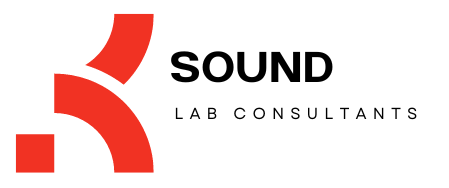

Lab Management Consulting
In the realm of modern healthcare, clinical laboratories play a pivotal role in providing accurate and timely diagnostic information that aids in patient care and treatment decisions. However, managing a Clinical Laboratory Improvement Amendments (CLIA) certified lab comes with its own set of challenges, ranging from quality control and regulatory compliance to technological advancements and operational efficiency. This is where CLIA Lab Management Consulting steps in as an invaluable partner, guiding laboratories toward excellence and ensuring they deliver the highest quality of care.
Understanding CLIA and Its Significance
The Clinical Laboratory Improvement Amendments (CLIA) program was established by the Centers for Medicare & Medicaid Services (CMS) to regulate laboratory testing and ensure the quality, accuracy, and reliability of patient test results. CLIA certification is crucial for any lab performing testing on human specimens to ensure patient safety and confidence in the results.
Laboratories seeking CLIA certification must adhere to stringent guidelines encompassing personnel qualifications, quality control measures, proficiency testing, equipment validation, and more. Navigating these requirements can be complex and time-consuming, making CLIA lab management consulting an essential resource.
The Role of CLIA Lab Management Consulting
CLIA lab management consulting offers specialized expertise to clinical laboratories in various aspects of their operations. These consulting services are designed to address the unique challenges labs face in maintaining compliance, optimizing efficiency, and delivering accurate results. Let's explore some key areas where CLIA lab management consulting proves its worth:
Regulatory Compliance: CLIA regulations are periodically updated, and staying current with these changes is a necessity. Lab management consultants keep laboratories informed about the latest regulatory developments and assist in implementing the necessary changes to ensure compliance. This proactive approach helps labs avoid penalties and maintain their reputation.
Quality Assurance: Delivering accurate and reliable test results is at the core of laboratory operations. Lab management consultants help establish robust quality assurance programs, including proficiency testing, internal quality controls, and external quality assessment participation. This enhances the confidence of healthcare providers and patients in the laboratory's results.
Operational Efficiency: Efficient laboratory workflows are essential to meet the demands of patient care. Consultants analyze the laboratory's processes, identify bottlenecks, and suggest improvements to streamline operations. This might involve optimizing sample handling, automating repetitive tasks, and implementing efficient data management systems.
Personnel Training and Development: Competent and knowledgeable staff are a cornerstone of a successful lab. Consultants provide training to lab personnel on CLIA regulations, best laboratory practices, and the use of new technologies. This not only enhances staff skills but also boosts overall lab performance.
Technology Integration: The field of laboratory diagnostics is rapidly evolving, with new technologies and equipment constantly emerging. Consultants assess the lab's technological needs, recommend suitable solutions, and guide the integration of advanced equipment for accurate and efficient testing.
Risk Management: Every laboratory faces potential risks, whether they are related to errors in testing, data security breaches, or other operational challenges. Lab management consultants help identify these risks, develop mitigation strategies, and create contingency plans to minimize their impact.
Benefits of CLIA Lab Management Consulting
Engaging with CLIA lab management consultants yields a plethora of benefits for clinical laboratories:
Enhanced Compliance: Consultants ensure that labs stay up-to-date with the latest regulations, reducing the risk of compliance violations.
Accurate Results: Consultants' expertise in quality control processes and equipment validation helps labs deliver consistently accurate test results.
Improved Efficiency: Streamlined workflows and optimized processes lead to quicker turnaround times and improved overall efficiency.
Cost Savings: Efficient operations and reduced errors translate to cost savings for the laboratory.
Innovation Adoption: Consultants guide labs in adopting the latest technologies and best practices, keeping them at the forefront of diagnostic innovation.
Patient Safety: By maintaining high standards and accurate results, consultants contribute to patient safety and positive health outcomes.
Conclusion
In the intricate landscape of clinical diagnostics, CLIA-certified laboratories must uphold the highest standards of quality and compliance. The multifaceted challenges these labs face require expert guidance, which CLIA lab management consulting readily provides. With its focus on regulatory compliance, quality assurance, operational efficiency, and technology integration, consulting services elevate laboratories to new heights of excellence. As the healthcare industry continues to evolve, the partnership between CLIA lab management consultants and laboratories remains an indispensable component of modern medical care.
